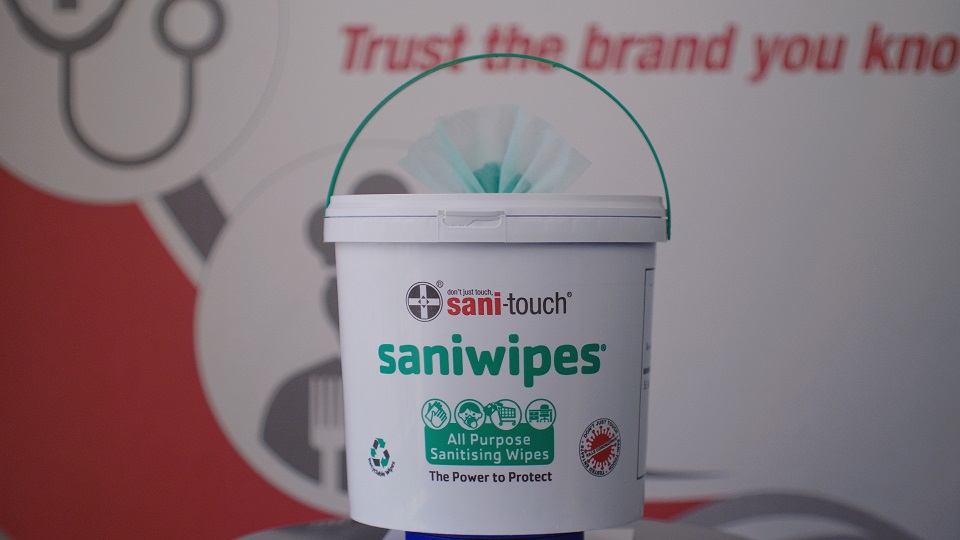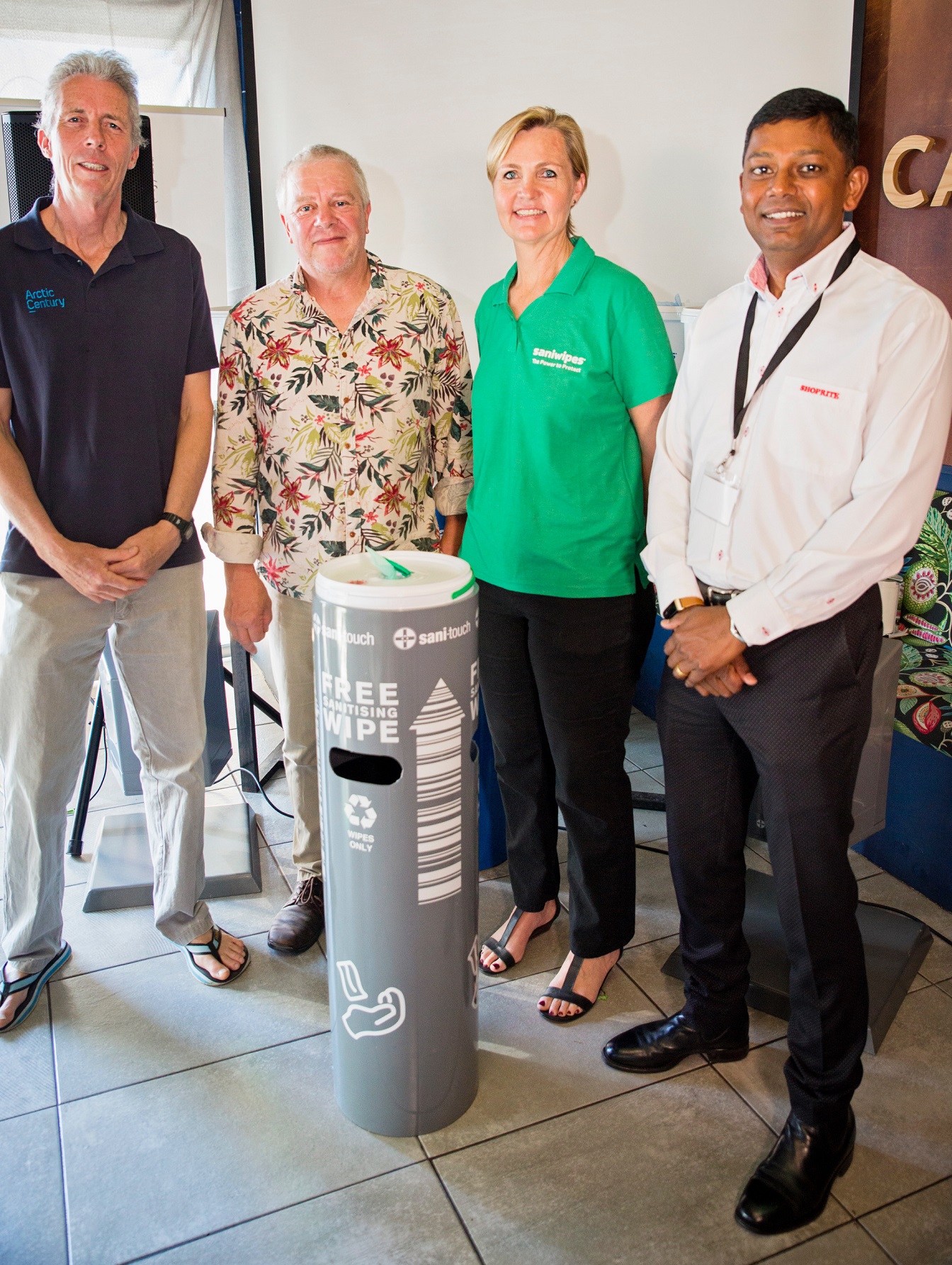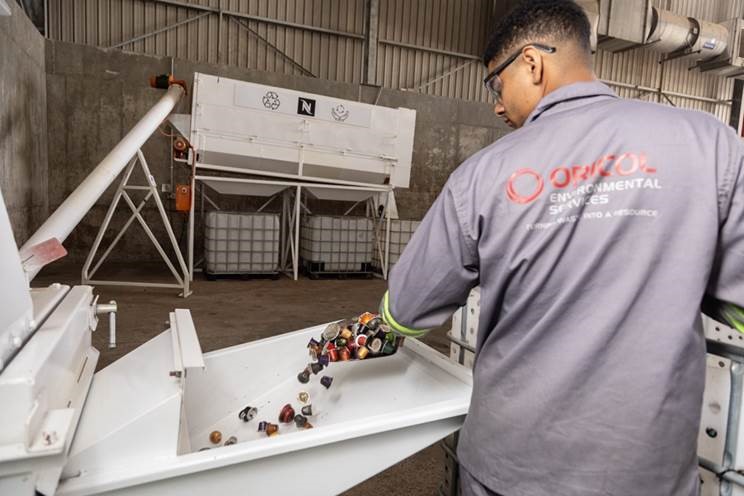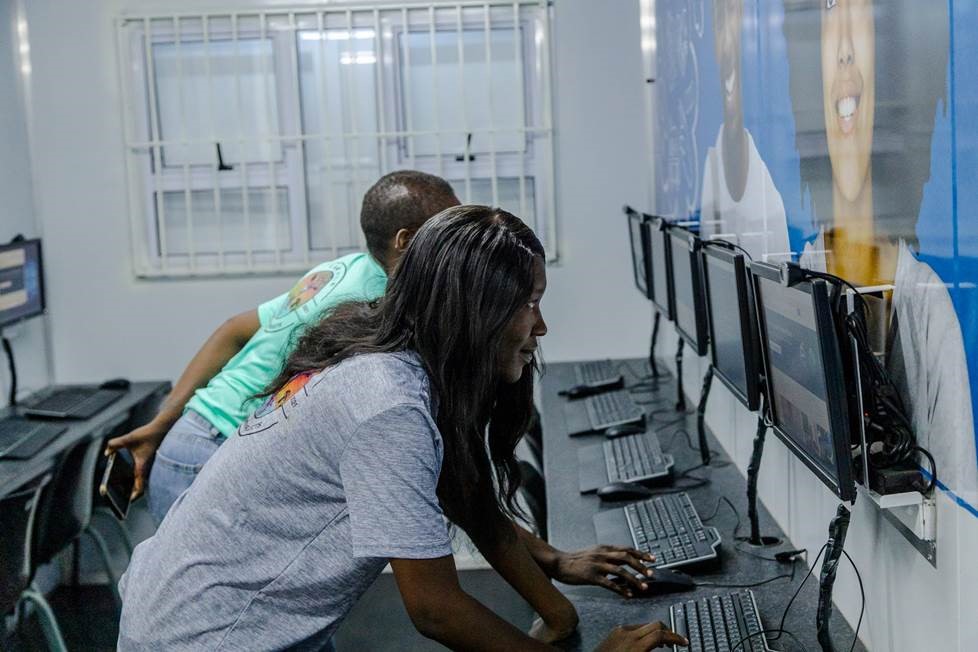There is growing pressure on manufacturers and retailers globally to eliminate single use plastic from their supply chains.
Around the world the consumer wipe market is booming, driven in large part by the outbreak of the Covid-19 pandemic in 2020. Literally overnight wipe manufacturers such as Infection Protection Products – Sani-touch, manufacturers of the very first trolley wipes to the South African market in 2006, saw an exponential increase in demand for their products.
The wipe market is expected to see healthy growth in the years ahead as more consumers use more wipes than ever before. Predictions are that continued concerns over infection control will mean the wipe industry grows by around 9% per annum between 2021 and 2026. However, the challenge for the wipe industry is how to ensure its products are green and don’t contribute to plastic or other waste.
The majority of wipes were initially manufactured from synthetic fibres which are not easily compostable or recyclable. As demand has increased manufacturers are increasingly using more affordable polypropylene and other mixed fibre blends.
Wipes, however, are single use products, irrespective of what they are manufactured from. As a result, it is essential that they are either biodegradable or recyclable.
From the outset Sani-touch’s trolley wipes have been manufactured using either biodegradable wet strength paper or locally produced 100% recyclable polypropylene. The company has now determined to ensure that as many products as possible – including wipes and dispenser buckets – are either recyclable or biodegradable, and to encourage the recycling of wipes.
“While the increased demand for trolley wipes has been very encouraging, what has concerned us is whether our recyclable polypropylene wipes are in actual fact being recycled after use,” reveals Sani-touch marketing director, Annette Devenish.
The company decided to take matters into their own hands. After establishing that the used wipes are safe to handle once they are dried as a result of their unique soap and disinfectant solution, Sani-touch ran a pilot study with waste recyclers in Cape Town and Johannesburg to recycle its Saniwipes polypropylene wipes to establish if it was possible to create a circular economy.
It soon realised that waste recyclers want products that are guaranteed pure polypropylene. “The challenge, however, is that with a plethora of wipes now available on the market, there is no saying what the wipes from other manufacturers consist of,” points out Devenish.
Sani-touch’s solution to this has been to convert all its recyclable wipes to an easily identifiable green colour in order to distinguish them from those of competitors.
At the same time it has converted all its Sani-touch Saniwipe buckets, including the catches and stickers on the buckets, to 100% polypropylene so that even the buckets can be recycled. Interestingly, the catches on the buckets are now manufactured from recycled wipes.
Once used, the 100% polypropylene wipes are inserted into a waste disposal box. Where possible a message board will be included to request consumers not to discard any other waste along with the wipes.
The company has redesigned all its wipe dispenser stands with smaller waste bin openings to discourage the disposal of any other material other than the wipes themselves.
Once the wipe bucket is empty, it is then refilled with the used wipes and the cleaner simply pulls off the sticker – also made from 100% polypropylene – and sticks it onto the lid of the bucket, indicating that it is now fill of used wipes and is ready for recycling.
The first company to support Sani-touch on its sustainability journey is Checkers. The group’s back haulers – which typically return to the group’s warehouses empty – will transport the empty buckets back to the warehouse where they will be collected by appointed waste recycling companies.
Two recycling main companies are used by Infection Protection Products – Myplas in Cape Town and Tufflex in Johannesburg – who recycle the discarded factory wipe material and convert it into pallets which are then returned to Infection Protection Products for use in their factories and warehouses, replacing traditional wooden pallets. “We use the pallets for stacking, storing and transporting products. Even though plastic pallets are more expensive than wooden pallets, they are more durable and hygienic as they can be easily washed down,” explains Devenish, adding that this saves forests as well as closing the circular economy.
The polypropylene pellets – small little plastic chips – are up-cycled and are used for various products such as in carpet production, the production of furniture, as well as in the production of containers. “Our long term goal is to use these pellets in the manufacture of our buckets,” reveals Devenish.
“Given that we acquire around 30 tons of polypropylene a month to manufacture wipes the last thing we wanted to do was to add this plastic waste to landfill,” says Devenish, adding that creating a circular economy for the wipes is an ideal solution.
“A circular economy which closes the loop in terms of retaining and re-using materials already in circulation is good for the environment, good for job creation and good for the economy. We are delighted that we are now playing a role in helping to support a thriving circular economy and we look forward to welcoming more customers to join on us this exciting journey. Our Saniwipes now have the power to protect the consumer, as well as protecting the environment – one wipe at a time!” she concludes.
Provided by KVD






































